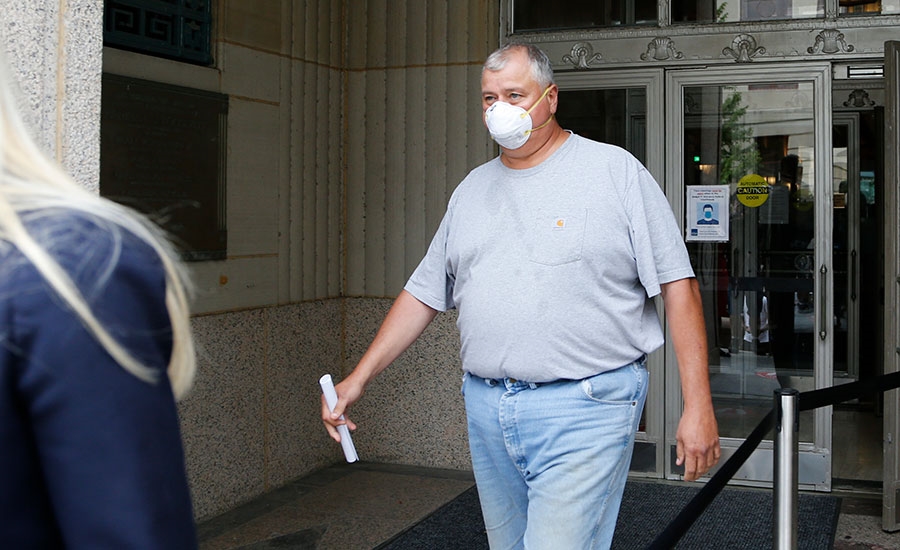Ohio energy provider FirstEnergy Corp. has agreed to pay a $230-million fine for its role in bankrolling the $1.1-billion bailout of its own nuclear and coal plants in 2019.
Federal attorneys filed a deferred prosecution agreement with FirstEnergy in U.S. District Court in Cincinnati July 22. The company was charged with conspiracy to commit honest services fraud in the largest bribery scandal in Ohio history. Under the deferred prosecution agreement, FirstEnergy will in addition to its fine develop a stronger compliance and ethics program, remain in compliance for three years and cooperate with the government in its investigation of the men involved.
The fraud charge will be dismissed, pending FirstEnergy's cooperation under the terms of the agreement. Of those charged, only former Ohio House Speaker Larry Householder (R) and former Ohio Republican Party Chairman Matt Borges are fighting the bribery and conspiracy charges. The others involved have agreed to cooperate with the government.
According to court documents, a 501c4 organization called Generation Now was created by Householder, Borges and three other state officials, former officials and lobbyists. Generation Now was funded entirely by $61 million in donations from FirstEnergy and its subsidiary FirstEnergy Solutions, which in 2016 owned the two nuclear plants in danger of closing.
The donations benefited Householder and other state politicians who backed House Bill 6 in 2019, which became law and provided FirstEnergy a $1-billion bailout of the two aging nuclear plants on Lake Erie. The two plants, which still operate, are now owned by Energy Harbor, which was created when FirstEnergy Solutions emerged from bankruptcy and was spun off into a new company.
HB6 also bailed out two FirstEnergy coal plants that it said at the time would have otherwise closed.
Generation Now received regular payments of up to $250,000 from FirstEnergy from late 2016 to 2019, according to the criminal complaint against FirstEnergy. The payments to Generation Now were in exchange for everything from running local house campaigns that led to Householder winning the speakership in 2019, to repairs to his farm. Vipal J. Patel, acting U.S. Attorney for the Southern District of Ohio, said at press conference July 22 that the utility must change the way it does business to fulfill the terms of the agreement.
"They had a corporate compliance agreement that didn't seem to work," Patel said. "Something wasn't working."
Patel said the deal was the largest penalty in the history of the state of Ohio and said he did not want to get into the legality or illegality of 501c4s, defined by the Internal Revenue Service as social welfare organizations that can make political donations, but did say at a news conference July 22, "It’s no different than if you had written Partners for Progress (the 501c4 FirstEnergy made the donations to Generation Now through) on a brown paper bag and stuffed a bunch of cash in it and slid it across the table. That’s largely analogous to what happened."
FirstEnergy's former CEO Chuck Jones, who was fired in October 2020 because of fallout from the scandal, said July 23 that his management team and FirstEnergy did nothing wrong and the payments it made were legal. A statement made on Jones' behalf by spokesman Allan Ripp said, "Mr. Jones did not make or authorize any payment of any money to any public official in exchange for any official act. Whether one agrees with it or not, the First Amendment and campaign finance laws allow the use of 501c4 entities for appropriate political activity; allow individuals and corporations to support political candidates in a lawful manner; and allow individuals and corporations to lobby on behalf of legislation and government policies."
But green energy and consumer advocates say, rather, that the $230-million penalty against FirstEnergy is not stiff enough and does not undo the damage that the company's lobbying did to the state's energy grid.
"It's a drop in the bucket," said Tom Bullock, executive director of the Citizens Utility Board of Ohio. "FirstEnergy admitted to taking part in a bribery scheme that cost taxpayers $1 billion. We absolutely need consumers to be made whole. We also need to address weatherization and how Ohio's entire clean energy system was dismantled by House Bill 6. This is still costing the taxpayers."
Jeff Deyette, director of state policy and analysis in the Climate and Energy program at the Union of Concerned Scientists, went even further in condemning the penalty as too lenient and said that it sets a bad precedent.
"What FirstEnergy got here was essentially a slap on the wrist. A $230-million investment essentially for a $1 billion bailout," he said. "More needs to be done to send a signal to utilities that this is not the way that utility policy, public policy should be made in this country moving forward,"
While part of HB6 has been repealed, the two nuclear plants as well as the coal plants are still in operation under Energy Harbor's management and, Bullock said, the loss of investment in clean energy solutions such as wind and solar created by the bailout of the coal and nuclear plants has left development of those technologies in Ohio behind other states.
Deyette said governance of how utilities participate in state politics needs to change.
"[FirstEnergy] Sort of laid out the playbook, here on how to use dark money in a continuing legal fashion," he said. "And that's what needs to change, This is a governance issue and we need to change the laws on the books."
This story was updated on Aug.5 with comments from the Union of Concerned Scientists.





Post a comment to this article
Report Abusive Comment